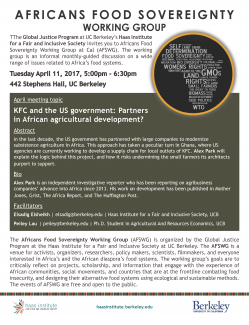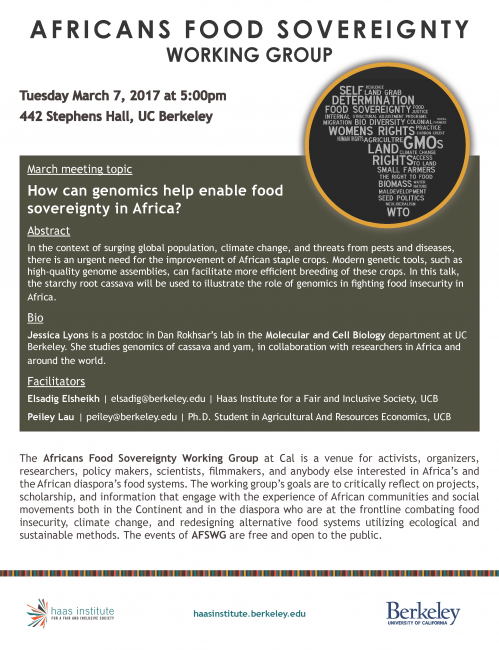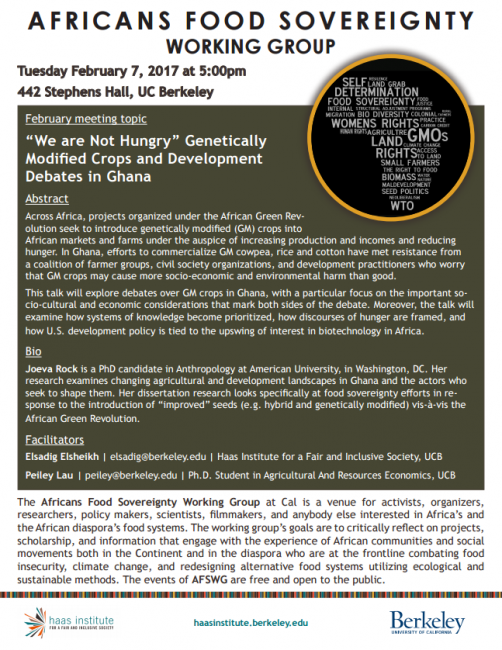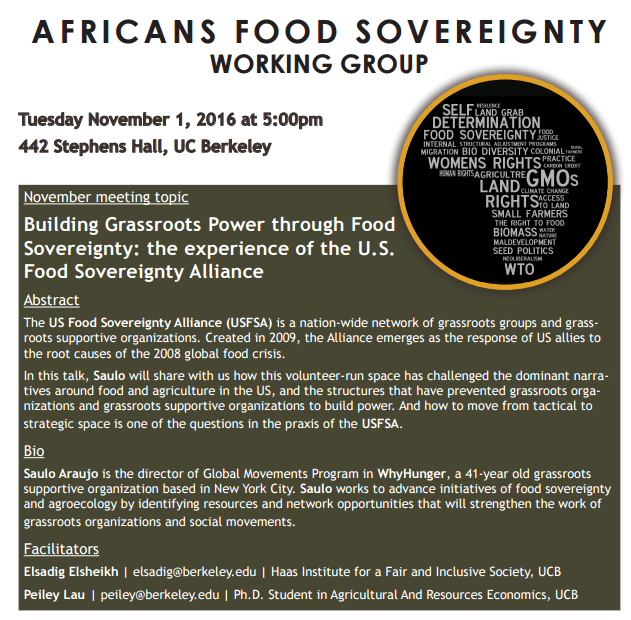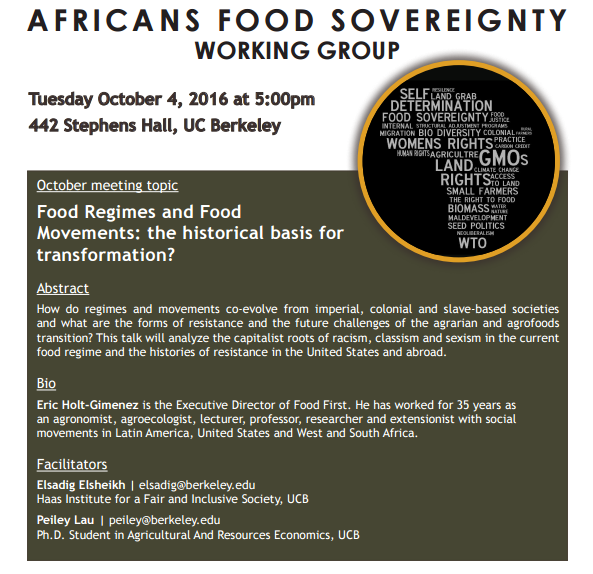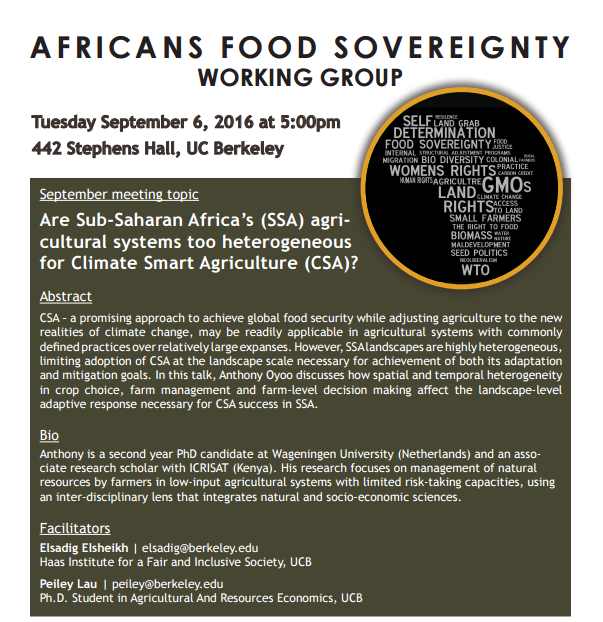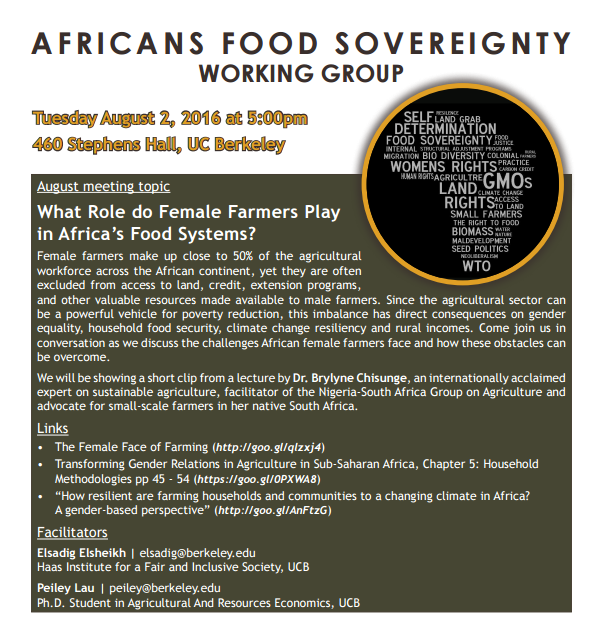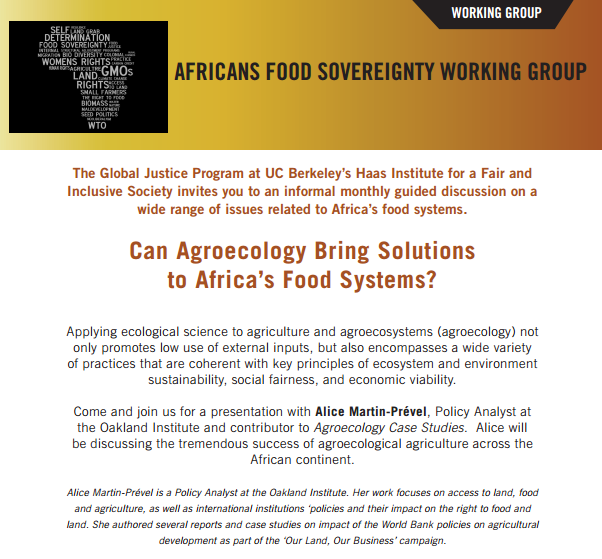In response to the global food system crisis and its connection to nearly every major ecological, economic, and sociopolitical challenge that the world faces, food sovereignty emerged as a new alternative for imagining, seeking, and defining a more just future of food. This project will showcase initiatives from around the world and the United States (with narratives, infographs, maps, diagrams, etc.) that have achieved or are in the process of achieving a greater degree of success to tackle systemic crises of food. Our first step was to establish a working group.
April 11, 2017
KFC and the US government: Partners in African agricultural development?
In the last decade, the US government has partnered with large companies to modernize subsistence agriculture in Africa. This approach has taken a peculiar turn in Ghana, where US agencies are currently working to develop a supply chain for local outlets of KFC. Alex Park will explain the logic behind this project, and how it risks undermining the small farmers its architects purport to support.
Speaker Bio
Alex Park is an independent investigative reporter who has been reporting on the agribusiness companies' advance into Africa since 2013. His work on development has been published in Mother Jones, Grist, The Africa Report, and The Huffington Post. Download the PDF here or click on the picture to your left.
March 7, 2017
How Can Genomics Help Enable Food Sovereignty in Africa?
In the context of surging global population, climate change, and threats from pests and diseases, there is an urgent need for the improvement of African staple crops. Modern genetic tools, such as high-quality genome assemblies, can facilitate more efficient breeding of these crops. In this talk, the starchy root cassava will be used to illustrate the role of genomics in fighting food insecurity in Africa.
Speaker Bio
Jessica Lyons is a postdoc in Dan Rokhsar's lab in the Molecular and Cell Biology department at UC Berkeley. She studies genomics of cassava and yam, in collaboration with researchers in Africa and around the world. Download the PDF here or click on the picture to your left.
February 7, 2017
We are Not Hungry: Genetically Modified Crops and Development Debates in GhanaAcross Africa, projects organized under the African Green Revolution seek to introduce genetically modified (GM) crops into African markets and farms under the auspice of increasing production and incomes and reducing hunger. In Ghana, efforts to commercialize GM cowpea, rice and cotton have met resistance from a coalition of farmer groups, civil society organizations, and development practitioners who worry that GM crops may cause more socio-economic and environmental harm than good.
This talk will explore debates over GM crops in Ghana, with a particular focus on the important socio-cultural and economic considerations that mark both sides of the debate. Moreover, the talk will examine how systems of knowledge become prioritized, how discourses of hunger are framed, and how U.S. development policy is tied to the upswing of interest in biotechnology in Africa. Download the flyer.
Speaker Bio
Joeva Rock is a PhD candidate in Anthropology at American University, in Washington, DC. Her research examines changing agricultural and development landscapes in Ghana and the actors who seek to shape them. Her dissertation research looks specifically at food sovereignty efforts in response to the introduction of "improved" seeds (e.g. hybrid and genetically modified) vis-à-vis the African Green Revolution.
November 1, 2016
Building Grassroots Power through Food Sovereignty: the experience of the U.S. Food Sovereignty Alliance (Africans Food Sovereignty Working Group)
TalkThe US Food Sovereignty Alliance (USFSA) is a nation-wide network of grassroots groups and grassroots supportive organizations. Created in 2009, the Alliance emerges as the response of US allies to the root causes of the 2008 global food crisis. In this talk, Saulo will share with us how this volunteer-run space has challenged the dominant narratives around food and agriculture in the US, and the structures that have prevented grassroots organizations and grassroots supportive organizations to build power. And how to move from tactical to strategic space is one of the questions in the praxis of the USFSA. Download the flyer.
Speaker Bio
Saulo Araujo is the director of Global Movements Program in WhyHunger, a 41-year old grassroots supportive organization based in New York City. Saulo works to advance initiatives of food sovereignty and agroecology by identifying resources and network opportunities that will strengthen the work of grassroots organizations and social movements.
October 4, 2016
Food Regimes and Food Movements: the historical basis for transformation
How do regimes and movements co-evolve from imperial, colonial and slave-based societies and what are the forms of resistance and the future challenges of the agrarian and agrofoods transition? This talk will analyze the capitalist roots of racism, classism and sexism in the current food regime and the histories of resistance in the United States and abroad.
Guest speaker
Eric Holt-Gimenez is the Executive Director of Food First. He has worked for 35 years as an agronomist, agroecologist, lecturer, professor, researcher and extensionist with social movements in Latin America, United States and West and South Africa.
September 6, 2016
Are Sub-Saharan Africa’s (SSA) agricultural systems too heterogeneous for Climate Smart Agriculture (CSA)?
CSA – a promising approach to achieve global food security while adjusting agriculture to the new realities of climate change, may be readily applicable in agricultural systems with commonly defined practices over relatively large expanses. However, SSA landscapes are highly heterogeneous, limiting adoption of CSA at the landscape scale necessary for achievement of both its adaptation and mitigation goals. In this talk, Anthony Oyoo discusses how spatial and temporal heterogeneity in crop choice, farm management and farm-level decision making affect the landscape-level adaptive response necessary for CSA success in SSA.Guest Speaker
Anthony is a second year PhD candidate at Wageningen University (Netherlands) and an associate research scholar with ICRISAT (Kenya). His research focuses on management of natural resources by farmers in low-input agricultural systems with limited risk-taking capacities, using an inter-disciplinary lens that integrates natural and socio-economic sciences.
Download the flyer. Download the presentation.
August 2, 2016
What Role do Female Farmers Play in Africa's Food Systems?
Female farmers make up close to 50% of the agricultural workforce across the African continent, yet they are often excluded from access to land, credit, extension programs, and other valuable resources made available to male farmers. Since the agricultural sector can be a powerful vehicle for poverty reduction, this imbalance has direct consequences on gender equality, household food security, climate change resiliency and rural incomes. Come join us in conversation as we discuss the challenges African female farmers face and how these obstacles can be overcome.We will be showing a short clip from a lecture by Dr. Brylyne Chisunge, an internationally acclaimed expert on sustainable agriculture, facilitator of the Nigeria-South Africa Group on Agriculture and advocate for small-scale farmers in her native South Africa.
April 5, 2016
Can Agroecology Bring Solution to Africa’s Food Systems?
Applying ecological science to agriculture and agro-ecosystems (agroecology) not only promotes low use of external inputs, but also encompasses a wide-variety of practices that are coherent with key principles of ecosystem and environment sustainability, social fairness, and economic viability. Alice Martin-Prével will be discussing the tremendous success of agroecological agriculture across the African continent.Guest Speaker
Alice Martin-Prével is a Policy Analyst at the Oakland Institute. Her work focuses on access to land, food and agriculture, as well as international institutions ‘policies and their impact on the right to food and land. She authored several reports and case studies on impact of the World Bank policies on agricultural development as part of the ‘Our Land, Our Business’ campaign.
